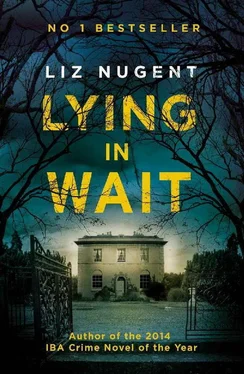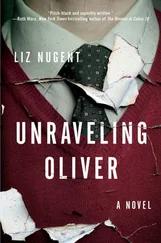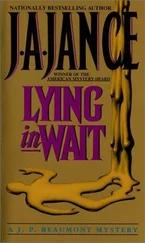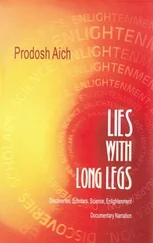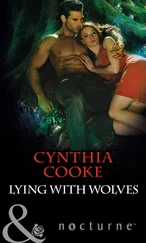Eventually, at my request, Laurence paved over the flower bed and cemented the old bird bath on top of it. He planted a few shrubs around the edge of the raised platform. It still looked odd, like a sacrificial altar. Laurence averted his eyes from the kitchen window at all times. After a while, he installed a blind and kept it closed. The kitchen was gloomy now. We made more use of the dining room, which previously had only been used on special occasions. Laurence insisted that we sell Andrew’s car. We got a shockingly low price for it and bought a small tin-can run-around. I taught Laurence to drive. He was a quick learner.
Before Andrew’s death, the plan had always been that Laurence would study Law at Trinity College and then be apprenticed to Hyland & Goldblatt, the law firm that Daddy had founded in 1928 with Sam Goldblatt. Andrew worked there until he was appointed to the bench, but now most of Daddy’s and Andrew’s friends were either long since dead or had moved on and started their own practices. Besides, even if we could have availed of a student grant for Laurence, we would still have had no income.
Laurence took civil service exams after the Leaving Certificate. I had hoped that he might be recruited for the diplomatic corps, but it seemed that was impossible without a university education. He was given a choice of the motor tax office or an unemployment benefit office. I thought that the motor tax office might have more prospects, that perhaps they might train him as a tax accountant, but he did some investigation and found that would not be the case. I was horrified at the thought of his mixing with unemployed people, but he pointed out that we were both unemployed people.
‘Women go to work now too, you know, Mum.’ The notion of me getting a job was of course preposterous. I was trained for nothing and I have never mixed with outsiders. It was too late for me.
We survived on my widow’s pension and Laurence’s meagre wages, but as he was one of few men in his department, he was promoted quickly and steadily. Within four years he was in management, supervising a group of four or five. He made friends easily, and socialized after work on Fridays. I wondered at his ability to socialize. I never had it – not after the accident, anyway, but perhaps that is because I was home-schooled thereafter. I knew that Laurence did not enjoy his last schooldays, but that was all tied up with a sudden move to a new school, his father’s death, exam pressure and discovering the body of that girl. He certainly retreated into his shell after that. Thankfully, that put paid to his relationship with the awful Helen girl. I knew Laurence would never commit to a girl like that, so when they split up I was relieved, although disturbed to discover that she had broken up with him, after cheating on him with another boy. Bizarrely, they even stayed in touch after that and she still called to the house from time to time. She was training to be a nurse. I was astonished that a girl like that would enter a caring profession, but she boasted about moving out of home and annoyed me by suggesting that Laurence should get a flat. Laurence did not want to move out, nor could he afford to keep two households, so thankfully it was out of the question.
Laurence started dating a girl from work, a quiet nervous mousy thing called Bridget. I could tell that she liked him more than he liked her, that the relationship was quite one-sided. She certainly phoned him more than he phoned her, and when I answered the phone, she whispered and said ‘please’ and ‘thank you’ more times than were called for. But he started to exercise and lose weight again, and I wondered if he was really doing it to impress this mouse. He showed me a photograph of her once. She was quite average-looking, and a heavy fringe covered her eyes. I relaxed more after that. He would not leave me for her. Still, I helped him with his diet.
Acquiring or giving birth to another baby was now out of the question. I knew that there was no possibility of it. I had passed fifty. Laurence was an adult now, no doubt about it, but I was secure enough to know that he would not leave me. Laurence knew that I could never manage on my own. He would stay with me here, in Avalon.
I never spent more time in the kitchen than I had to, which was difficult considering my love of food, but I rearranged the cupboards and moved a lot of it into the pantry with the fridge. I wanted to brick up the window so that I wouldn’t have to look out on that… tomb, but Mum wouldn’t let me. The compromise was a blind that is permanently lowered. It admits low-level light. We cannot employ a gardener, and not just because we can’t afford to, so I tend to the garden and the grave with great reluctance.
It is a terrible, terrible thing to live with, this knowledge of a murder – and the evidence right here – but now it is too late for us to do anything. It is five years since I discovered it. Since it can be established that I am the person who paved it and put the bird bath on top, I am implicated in the cover-up.
After I discovered Annie Doyle, I became fearful of everything. If I could not trust my own father, who could I trust? Not Helen. Helen dumped me the day after we got our Leaving Cert results. The circumstances were sordid. She had sex with the boy in my class who had bullied me the most. He made sure I knew about it. I didn’t care that much by then. I didn’t really care about anything. I was humiliated, but she was never the love of my life. I didn’t think I would ever have a love life.
I didn’t stick to Granny’s diet and exercise regime. I became obese again, revolting and disgusting. I caught my reflection in shop windows sometimes and turned away, sickened by the sight.
Going to university was no longer an option for me, but it may have been a blessing. I liked working in the dole office. Apollo House was right in the heart of the city, surrounded by shops and offices and pubs. At first I shadowed others as they showed me how to go through the various application forms with the claimants and then how those claims were processed. There was an awful lot of paperwork involved. I didn’t really get to process any actual claims for the first few months. I did a lot of carbon-copying, and delivering files from one section to the other, and fetching teas and coffees. At the end of the process, our office issued a giro, which could be cashed in the post office across the road. This was all tightly controlled and well managed. Every section of about eight staff handled about 500 claims. The section was made up of two clerical assistants and five clerical officers, one of whom was the supervisor. Our supervisor was middle-aged Brian, a widower with three grown-up children – he didn’t appear to be very clever, although he was very nice to all of us.
In the beginning I was scared of the unemployed. I’d heard about them from my father, who had referred to them as layabouts and spongers. I had the impression that they were all criminals. Although a few of the people we dealt with were just out of prison, most were ordinary people who had lost jobs or were looking for them. Unemployment rates were high and all kinds of people were turning up to sign on. Middle-class housewives abandoned by their husbands, college dropouts, winos and junkies. The father of a former classmate, and our old butcher, who had been put out of business by the new supermarket – they joined the type of people who had never been employed. Queuing up for a government cheque was the great leveller, and yet they didn’t get to go for a drink together afterwards and discuss how their day had been. Unemployment was something they experienced on their own in their long empty days at home, or mooching around the park, drinking tea in cheap cafés and trying to make it last. I understood that loneliness without ever having experienced it.
Читать дальше
